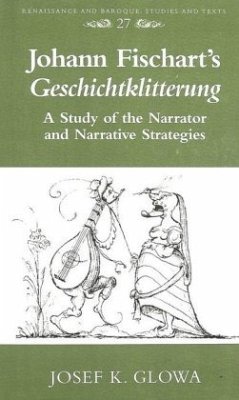This book is a new interpretation of Johann Fischart's Geschichtklitterung (1590), one of the most outstanding and puzzling works of German literature in the second half of the sixteenth century. As a greatly expanded adaptation of François Rabelais's Gargantua (1534), Fischart's novel has often been misjudged as a translation. Josef K. Glowa challenges this assumption and explores new ways of reading the Geschichtklitterung by focusing on the relationships between the author, narrator, readers, and fictional world in Fischart's novel. A careful study of the narrator and the narrative strategies uncovers a quantity of hitherto unexamined allusions, connotations, and intertextual references that allow the reader to gain a fresh look at an exciting literary masterpiece most worthy of being examined in its own terms.
"This book skillfully explores the tensions between inner being and social self that permeate Fischart's 'Geschichtklitterung'. Josef K. Glowa traces in particular the linguistic and rhetorical strategies that enable Fischart to blend together swirls of competing social and cultural discourses. Glowa's scholarship illuminates a fascinating sixteenth-century text that deserves to be better known." (Michel-Andre Bossy, Professor of Comparative Literatures, Brown University)

